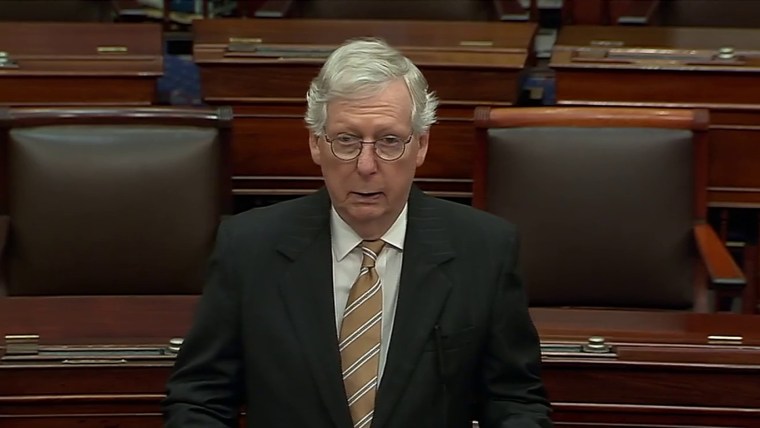Chances are, there will not be a government shutdown tomorrow night, but Congress is facing an uncomfortable deadline. In fact, with existing funding set to expire, lawmakers will have to approve a stopgap spending bill to keep government operations going until December.
It was against this backdrop that House Republican leaders delivered an unambiguous message to their members: Vote against the bill that would keep the government’s lights on. GOP leaders circulated a memo complaining that they weren’t sufficiently consulted when the stopgap measure took shape.
Around the same time, however, Senate Minority Leader Mitch McConnell endorsed the same spending bill that his GOP counterparts in the House rejected.
A day earlier, McConnell extended a surprisingly hearty endorsement to a bipartisan effort to reform the Electoral Count Act and prevent future coup attempts. House Minority Leader Kevin McCarthy has rejected that same effort.
This divide — the Republicans’ Senate leader on one side, the party’s House leader on the other — is more common than many in the GOP like to admit. I’m reminded of a CNN report that ran late last year:
With control of both chambers at stake in next year’s midterms, the two top Republican leaders have increasingly taken sharply divergent positions on major issues dominating Congress, reflecting both the different institutions that they lead but also how they view the GOP’s posture headed into a hugely consequential election season.
Some of the differences relate to strategy. McConnell, for example, forcefully rejected the idea of Republicans unveiling a legislative blueprint ahead of the 2022 midterm elections. And yet, there was McCarthy going in the opposite direction last week, pushing his annoyingly vague “Commitment to America.”
There are also tonal differences. After the FBI’s Mar-a-Lago search, for example, McCarthy appeared desperate to impress Donald Trump and condemn federal law enforcement, while McConnell was more circumspect.
Indeed, the two Republican leaders have very little in common when it comes to how they approach the former president: McCarthy has been willing to sacrifice his dignity to stay in Trump’s good graces, while McConnell has earned the former president’s contempt by acknowledging the legitimacy of the 2020 election results.
But let’s not overlook the substantive differences: McConnell voted for the bipartisan infrastructure package and the biggest gun reform bill in three decades, while McCarthy opposed both.
It would be a dramatic overstatement to suggest that the two GOP leaders are intraparty opponents. They’re not. We’re talking about two conservative Republicans who agree far more than they disagree.
But to think that McCarthy and McConnell are always on the same page would be wrong, too. They differ more often than leaders from the same party generally do, and if either — or both —of them end up leading a majority conference in the next Congress, these deviations may prove to be quite important.

